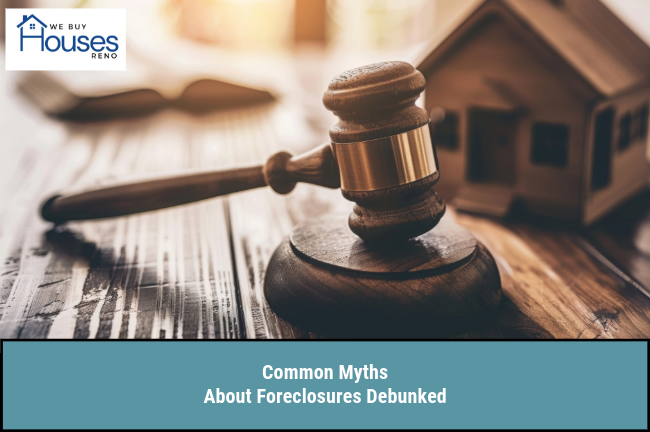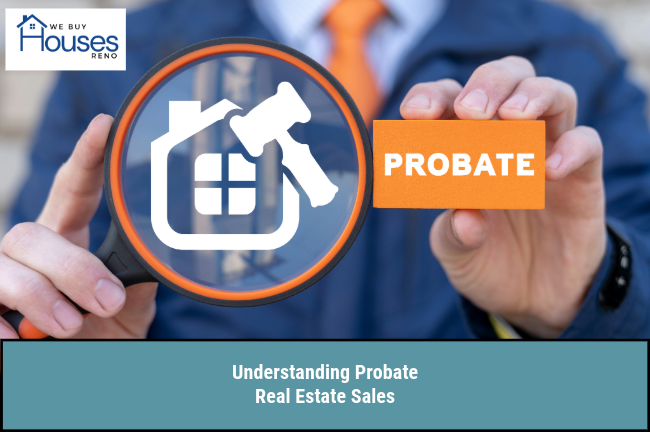Foreclosures can be a stressful and confusing process for homeowners and buyers alike. Unfortunately, there are many myths surrounding foreclosures that can lead to misunderstandings about the process and its consequences. In this blog, we will debunk some of the most common myths about foreclosures to help you navigate this complex real estate scenario with more confidence and knowledge.
Myth: Only Irresponsible Homeowners Face Foreclosure
One of the most common myths about foreclosures is that only homeowners who are financially irresponsible end up in foreclosure. While it’s true that missing mortgage payments can lead to foreclosure, the reasons behind missed payments are often far more complex. Many homeowners fall into foreclosure due to unexpected life events such as medical emergencies, job loss, or a sudden reduction in income. These unforeseen circumstances can make it difficult to keep up with mortgage payments, even for responsible homeowners.
In addition, economic downturns or fluctuations in the housing market can play a significant role in causing foreclosures. Homeowners who may have purchased a home during a booming economy could suddenly find themselves in financial trouble when the market crashes or interest rates rise. So, while poor financial management can contribute to foreclosure, it’s not the only cause.
- Job loss: Sudden job loss or income reduction can lead to foreclosure.
- Unforeseen events: Medical emergencies and other life changes often cause missed mortgage payments.
Myth: Buying a Foreclosure Guarantees a Great Deal
Many people believe that buying a foreclosed home guarantees a great deal at a significantly lower price. While it’s true that foreclosures can sometimes be sold below market value, the process isn’t always a money-saving opportunity. Foreclosed properties are often sold “as-is,” meaning the buyer will be responsible for any repairs or updates needed. In some cases, the cost of renovations can offset the lower purchase price, making the deal less beneficial than expected.
Furthermore, buying a foreclosed property can involve a more complicated process than a traditional home sale. Auctions, court approvals, and competition from other buyers can drive up the price of the property. It’s important to do thorough research and inspections to ensure that the foreclosed home is truly a good deal before making a purchase.
- As-is condition: Foreclosed homes may require costly repairs and updates.
- Complications: Auctions and court approvals can make buying a foreclosure more complex.
Myth: Foreclosure Completely Ruins Your Credit
While it’s true that foreclosure has a negative impact on your credit score, the idea that it permanently ruins your credit is a myth. A foreclosure can significantly lower your score, but the impact lessens over time as you work to rebuild your credit. Many homeowners who go through foreclosure are able to recover financially by making on-time payments on other accounts and practicing good credit habits.
In fact, some lenders are willing to work with borrowers who have experienced foreclosure after a certain period. With consistent effort, it’s possible to improve your credit score and even qualify for a mortgage in the future. The key is to take proactive steps to rebuild your credit and avoid making the same financial mistakes that led to foreclosure in the first place.
- Recovery: Credit scores can improve over time with responsible financial habits.
- Mortgage eligibility: Borrowers can qualify for a mortgage again after foreclosure with time and effort.
Myth: You Have to Leave Your Home Immediately After Foreclosure
Many homeowners believe that once the foreclosure process starts, they must immediately vacate the property. This isn’t necessarily true. The foreclosure process can take several months, and homeowners often have time to explore options to stay in their home. Some states even have a redemption period, allowing homeowners to regain their property if they can catch up on payments or settle their debts during a specified time after foreclosure.
Additionally, homeowners facing foreclosure have the right to negotiate with their lender. Loan modifications, repayment plans, or short sales can be explored as alternatives to full foreclosure. It’s important to remember that homeowners still have options during the foreclosure process and may not have to leave their homes as quickly as they fear.
- Timeline: Foreclosure doesn’t always mean you have to leave your home right away.
- Redemption: Some states offer a redemption period to help homeowners regain their property.
Conclusion
There are many myths surrounding foreclosures that can lead to confusion and fear for both homeowners and potential buyers. By understanding the realities of foreclosure, homeowners can explore their options more effectively, and buyers can approach foreclosed properties with a clear view of the challenges and opportunities involved. A homebuying company can help you navigate the foreclosure process, whether you’re looking to sell your home or purchase a foreclosed property, with expert guidance and support.


